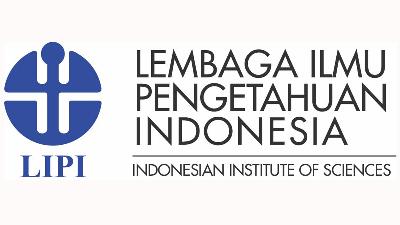The Evaluation of The Parameter Consumer Purchase Intention Towards Green Products Small Medium Enterprises (SMES) During the Covid-19 Pandemic (Case Study of Consumer in Kudus)
Abstract
Keywords
Full Text:
PDFReferences
Dahliah, D., Kurniawan, A., & Putra, A. H. P. K. (2020). Analysis and strategy of economic development policy for SMEs in Indonesia. The Journal of Asian Finance, Economics, and Business, 7(5), 103-110.
Yusoff, Y. M., Omar, M. K., Zaman, M. D. K., & Samad, S. (2019). Do all elements of green intellectual capital contribute toward business sustainability? Evidence from the Malaysian context using the Partial Least Squares method. Journal of Cleaner Production, 234, 626-637.
Kartawinata, B. R., Maharani, D., Pradana, M., & Amani, H. M. (2020). The Role of Customer Attitude in Mediating the Effect of Green Marketing Mix on Green Product Purchase Intention in Love Beauty and Planet Products in Indonesia. In Proceedings of the International Conference on Industrial Engineering and Operations Management (Vol. 1, pp. 3023-3033).
Petroni, F., Rocktäschel, T., Lewis, P., Bakhtin, A., Wu, Y., Miller, A. H., & Riedel, S. (2019). Language models as knowledge bases?. arXiv preprint arXiv:1909.01066.
Peltier, J. W., & Scovotti, C. (2010). Enhancing entrepreneurial marketing education: the student perspective. Journal of Small Business and Enterprise Development.
Maryati, S., Humaira, A. N. S., Afriana, A., Roekmi, R. A. K., & Suhartini, N. (2021). Developer behavior in local infrastructure provision in Indonesia: Implications for policy. Utilities Policy, 70, 101183.
Ghufron, M. N. & Risnawati, S. R. (2016). Teori-Teori Psikologi. Jogjakarta: Ar-Jakarta: PT Bumi Aksara
Mirabi, V., Akbariyeh, H., & Tahmasebifard, H. (2015). A study of factors affecting on customers purchase intention. Journal of Multidisciplinary Engineering Science and Technology (JMEST), 2(1).
Mustaqim, M and Ahamad B. (2015). Spirit Gusjji gang Kudus dan Tantangan Globalisasi Ekonomi. Jurnal Penelitian, Vol 9 No 1, Hal 19- 39
Ma’zumi, taswiyah dan Najmudin. (2017). Pengaruh Religiusitas Terhadap Perilaku Ekonomi Masyarakat Pasar Tradisional. AlQalam, Vol 34 No 2 : 313-336
Arwani, M., & Suprehatin, S. (2011). The Influence of Satisfaction and Relationship Marketing on Loyalty with Individual Characteristics as a Moderator: a Case Study on Islamic Banking Customers in East Java. Journal of Indonesian Economy and Business, 26(3), 341-358.
Schaefer, Anja. (2016). Consumer Knowledge and Country of Origin Effects.
Ajzen, I. (1991). The Theory of Planned Behavior, Organizational Behavior and Human Decision Processes 50 : 179-211
Ajzen, I. (2006). The theory of planned behavior. Retrieved Juni, 09, 2015 from: http://people.umass.edu/aizen/tpb.html
Amos, Ayuo & Kubasu Alex. (2014). Theory of Planned Behaviour, Contextual Elements, Demographic Factors and Entrepreneurial Intentions of Students in Kenya. European Journal of Business and Management, 6 (15)
Tötterman, H., & Sten, J. (2005). Start-ups: Business incubation and social capital. International small business journal, 23(5), 487-511.
Morrison, A., Breen, J., & Ali, S. (2003). Small business growth: intention, ability, and opportunity. Journal of small business management, 41(4), 417-425
Mirabi, V., Akbariyeh, H., & Tahmasebifard, H. (2015). A study of factors affecting on customers purchase intention. Journal of Multidisciplinary Engineering Science and Technology (JMEST), 2(1).
Suki, N. M. (2011). Modeling early adopters purchases intention towards online music. Middle East Journal of Scientific Research, 7(6), 827-836.
Chen, C. C., Hsiao, K. L., & Wu, S. J. (2018). Purchase intention in social commerce: An empirical examination of perceived value and social awareness. Library Hi Tech.
Dissanayake. (2013). The Impact of Perceived Desirability and Perceived Feasibility on Entrepreneurial Intention among Undergraduate Students in Sri Lanka: An Extended Model, he Kelaniya. Journal of Management 2(1) : 39-57
Sekaran, U. (2006). Metodologi Penelitian untuk Bisnis, Edisi 4. Salemba Empat. Jakarta.
Ferdinand, A. (2006). Metode Penelitian Manajemen: Pedoman Penelitian untuk skripsi, Tesis dan Disertasi Ilmu Manajemen. Universitas Diponegoro. Semarang.
Seprizah, A. (2016). Faktor-Faktor Yang Mempengaruhi Accounting Knowledge Sharing Intention Melalui Internet Pada Mahasiswa Akuntansi. Skripsi. Universitas Bengkulu. Bengkulu.
Setiawan. T. R & Richard, A. (2012). Pengaruh Brand Image dan Product Knowledge terhadap Purchase Intention. Universitas Tarumanagara
Harahap, A., Zuhriyah, A., & Rahmayanti, H. (2018). Relationship between knowledge of green product, social impact and perceived value with green purchase behavior. In E3S Web of Conferences (Vol. 74, p. 04002). EDP Sciences
Jasin, H., Mujiatun, S., Rambe, M. F., & Siregar, R. B. (2021). Apakah Kepercayaan Memediasi Pengaruh Reputasi Bank dan Religiusitas Terhadap Purchase Intention?. Jurnal Ilmiah Manajemen dan Bisnis, 22(1), 86-102.
Risal, T., Mirawati, M., & Prabudi, R. (2021). Pengaruh Customer Satisfaction dan Religiusitas sebagai Variabel Moderasi Atas Penggunaan Islamic Branding terhadap Purchase Intention. Jesya (Jurnal Ekonomi dan Ekonomi Syariah), 4(1), 387-398
Aruan, D. T. H., & Wirdania, I. (2020). You are what you wear: examining the multidimensionality of religiosity and its influence on attitudes and intention to buy Muslim fashion clothing. Journal of Fashion Marketing and Management, 24 (1), 121-136.
Refbacks
- There are currently no refbacks.

This work is licensed under a Creative Commons Attribution 3.0 License.
Supported by :


 Indexed by :
Indexed by :




